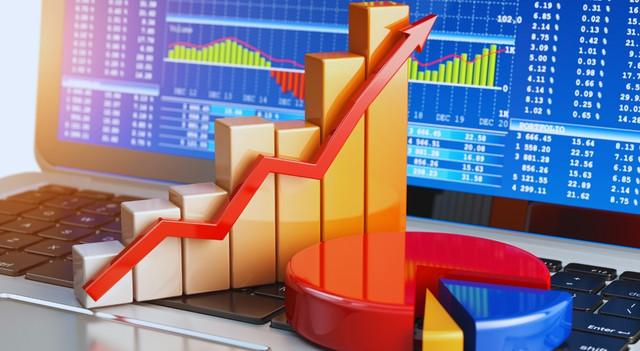
U.S. index futures rose slightly in pre-market trading on Tuesday after the S&P 500 and Dow Jones hit new closing records.
At 5:19 AM, Dow Jones futures (DOWI:DJI) were up 78 points, or 0.18%. S&P 500 futures gained 0.21%, and Nasdaq-100 futures advanced 0.33%. The 10-year Treasury yield stood at 3.791%.
In commodities, oil prices surged due to new monetary stimulus from China and rising tensions in the Middle East following an Israeli strike on Hezbollah in Lebanon, which may affect supply. Additionally, a major hurricane approaching the U.S. coast has led producers to evacuate platforms in the Gulf of Mexico and halt part of production.
West Texas Intermediate crude for November rose 2.67%, to $72.22 per barrel, while Brent for November gained 2.44%, to $75.70 per barrel.
Iron ore saw a significant increase after China announced measures to boost economic growth and strengthen its real estate market. Despite being one of the worst-performing commodities this year due to slowing demand, iron ore futures on China’s Dalian Commodity Exchange posted their largest intraday gain in over a year, reflecting increased market confidence.
On the U.S. economic calendar today, at 9:00 AM, Federal Reserve Governor Michelle Bowman will give a speech, and the July S&P Case-Shiller Home Price Index for 20 cities will be released. At 10:00 AM, September consumer confidence will be published, with a forecast of 102.8, down from the previous 103.3.
Asia-Pacific markets closed higher, led by Beijing’s stimulus measures. Hong Kong’s Hang Seng jumped nearly 4% late in the session, while Japan’s Nikkei 225 advanced 0.57%. Australia’s S&P/ASX 200 dipped 0.13%, and South Korea’s Kospi rose 1.14%. China’s CSI 300 had its best day in four years, closing up 4.33% after the central bank announced new economic measures.
The package includes a 50 basis point cut in banks’ reserve requirement ratio, a 0.5 percentage point reduction in mortgage rates, and the release of 1 trillion yuan ($141.78 billion) for new loans. Additionally, the government will promote mergers and acquisitions and offer up to 800 billion yuan in financing tools to support the stock market. This is the largest stimulus since the pandemic, aiming to combat deflation and meet growth targets. However, analysts warn that weak credit demand may limit the impact, requiring additional fiscal measures.
In the U.S., the Commerce Department proposed banning Chinese software and hardware in connected vehicles, citing national security. If approved, the measure would affect Chinese vehicles and force American automakers to remove Chinese components by 2027. The ban could extend to vehicles made in Russia and other adversarial countries.
In Australia, the central bank kept interest rates at 4.35%, emphasizing the need for restrictive policy to control inflation. Analysts expect rates to remain unchanged until mid-2025.
The Bank of Japan, on the other hand, will take a cautious approach to its monetary policy, according to Governor Kazuo Ueda. The bank will only raise interest rates when inflation hits 2%, considering global risks before making quick decisions. Japan’s industrial activity fell in September, with the manufacturing PMI at 49.6, indicating contraction, while the services sector expanded with a PMI of 53.9. Manufacturers’ confidence remains low due to weak demand from China, despite lower input inflation pressures.
In Taiwan, export orders exceeded expectations in August, reaching $50.22 billion, a 9.1% increase year-over-year, driven by demand for artificial intelligence chips. The government expects this growth to continue due to new applications and strong demand for electronics in the second half of the year.
European markets are trading higher on Tuesday, boosted by China’s monetary stimulus. Sectors such as mining, technology, and consumer goods are leading the gains, while telecommunications and utilities are lagging, despite concerns about European growth.
Despite negative PMI data from Germany and France, European stocks closed higher on Monday. Today, Commerzbank (TG:CBK) shares are partially recovering from the more than 5% drop the previous day, following Chancellor Olaf Scholz’s criticism of the “hostile” takeover by UniCredit, which increased its stake to 21%.
U.S. stocks closed higher on Monday, with the Dow rising 0.15%, the S&P 500 advancing 0.28%, and the Nasdaq gaining 0.14%. Investors remained cautious ahead of key economic data and Fed speeches. Intel (NASDAQ:INTC) stood out, closing up 3.3% after news of a possible billion-dollar investment from Apollo Global Management (NYSE:APO).
On the quarterly earnings front, results from AutoZone (NYSE:AZO) and Thor Industries (NYSE:THO) are expected before the open.
After the close, KB Home (NYSE:KBH), Progress Software (NASDAQ:PRGS) and Stitch Fix (NASDAQ:SFIX) will report.

It looks like you are not logged in. Click the button below to log in and keep track of your recent history.